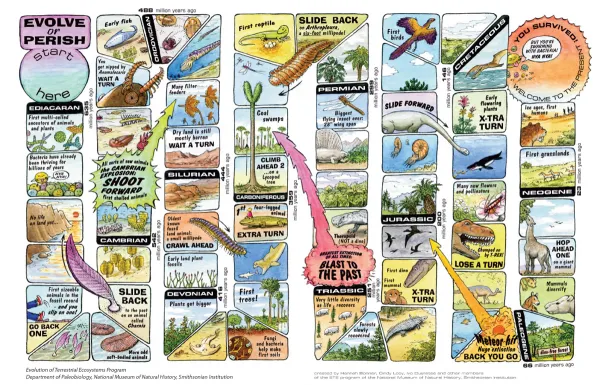In my first two-and-a-bit months working as a science teacher, there were only a few things that actually worked. And when I say “worked”, I mean made those incredibly lazy and bored pupils of mine to pay any attention for more than a minute. In case of Evolve or Perish, it worked for a good half an hour with Grade 7. They even might have learned something about geologic periods.

The preparation is minimal: you just have to print out the two pages of the game. Then tell the students to trim and glue them together to make a “board”. That’ll keep them busy for additional ten—fifteen minutes. If you have even more time to spare, you can print out the black-and-white version and then ask them to colour it. Then you’ll need dice and counters. I bought a box of four dice and I don’t know how many counters in a Chinese shop for €1. Three-four players per board work the best.
I didn’t expect that the Grade 11 students, better behaved but even more bored, to enjoy it as much if not more than Grade 7. But here they were, suddenly wide awake, rolling their dice and shouting “¡Ñoss!” when landing on “blast to the past”. What’s more, when they finished, they started from the beginning. One team played two games, another three games. All without me telling them what to do. Marvellous.